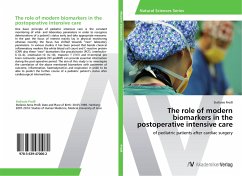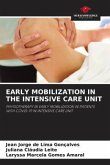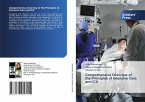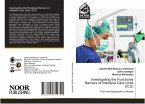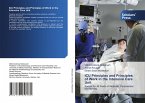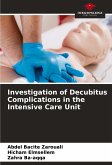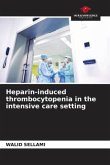One basic principle of pediatric intensive care is the constant monitoring of vital- and laboratory parameters in order to recognize deteriorations of a patient's status early and take appropriate measures. In the past the focus of interest mainly lay in physical monitoring whereas recently the focus has shifted towards "new" laboratory parameters. In various studies it has been proved that beside classical inflammatory markers like white blood cell count and C-reactive protein (CRP) also these "new" biomarkers like procalcitonin (PCT), interleukin-6 (IL-6), interleukin-10 (IL-10), troponin T (TnT) and N-terminal pro brain natriuretic peptide (NT-proBNP) can provide essential information during the post-operative period. The aim of this study is to investigate the correlation of the above mentioned biomarkers with parameter of outcome, inflammation, haemodynamics and respiration in order to be able to predict the further course of a pediatric patient's status after cardiosurgicalinterventions.
Bitte wählen Sie Ihr Anliegen aus.
Rechnungen
Retourenschein anfordern
Bestellstatus
Storno

